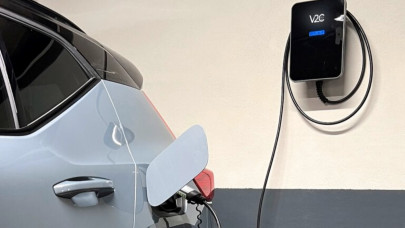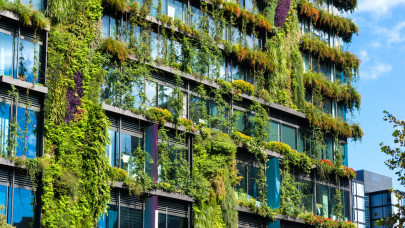Based on the projects implemented and announced to date, battery production in Europe is set to take off in the next few years. According to a projection by the European Federation for Transport and Environment (T&E), Europe can be self-sufficient in battery cells, i.e. produce 100% of our Li-ion battery cell demand from 2027.
Based on T&E's tracking of gigafactory plans, Europe is expected to have enough battery cell supply to meet demand in the second part of the decade. Increasing from about 69 GWh of production output In 2022, the most likely European battery supply is projected to ramp up to 238 GWh in 2025, 413 GWh in 2027 and up to 773 GWh in 2030.
This likely supply represents projects whose financing and building permits are at advanced stages.
However, the potential capacity is a lot higher as many newer projects (with less clear financing or firm industrial plans) have been announced more recently. With all announced projects, battery production could reach 286 GWh in 2025, 616 GWh in 2027 and 1,395 GWh in 2030.
Of course, a lot can change until then, with new capacity building / expansion announcements almost every month or so. Companies with the largest production in 2030 include CATL, Volkswagen Group, Freyr, ACC and Northvolt.
About 58% of European production in 2030 would be from European companies, while Chinese companies would account for 22% of production.
In 2022, 50% of the demand was met by EU battery production, with the majority coming from LG Chem in Poland and Samsung SDI in Hungary. In the base case scenario for demand, the production is projected to reach 72% of the demand in 2025 and over 100% from 2027. If all uncertain projects materialise, all demand will be met as soon as 2026. Nevertheless, in the industry potential scenario, demand would only be met in 2028 if all uncertain projects go ahead.
This means there is potential for Europe to be self-sufficient in battery cells as early as 2026-2028, but Europe needs to develop a strong industrial policy to secure these investments in Europe.
Based on completed projects and planned projects, there will be more than 1,000 GWh (1 TWh) of battery capacity in Europe by 2027, of which nearly 15% will come from Hungarian plants, mainly the gigantic CATL plant under construction in Debrecen, which will be the second largest such plant after Wroclaw in Poland, where capacity is to be boosted to 115 GWh from 86 GWh by 2025. By 2027, there will be at least 12 countries in Europe with more than 10 GWh of battery production capacity.

By 2030, a total of about 50 planned gigafactory projects, five of which are to be in Hungary means Europe will not lack cell manufacturing projects to meet demand, but battery demand in the industry potential scenario can only be met if all, including newer, projects come online.
The total capacity of the European plants could be close to 1.8 TWh. The map also shows that Hungary is expected to become a major battery manufacturing power in Europe, with the second largest capacity behind Germany.
By 2030, there will be at least 16 countries in Europe with battery production plants of more than 10 GWh, according to T&E.
The list is constantly growing, with bumper-to-bumper new announcements. We find a relatively up-to-date picture of completed and announced projects on the website of battery-news, where you can also see planned projects that will be completed after 2030 or where the plans do not yet include a production start date. The list includes, among others, projects such as Tesla's project in Germany, with Elon Musk previously stating that they would create the world's largest battery factory near Grünheide, with a capacity of up to 200-250 GWH. (However, insiders reported in September last year that the project for Germany is to be paused for the moment.)
The announcements of recent months leave no doubt that battery factories will be built in the coming years not only in Hungary, but also across Europe, including France, Spain, the UK, Switzerland and Norway, and that there is strong competition between countries to attract these plants.













